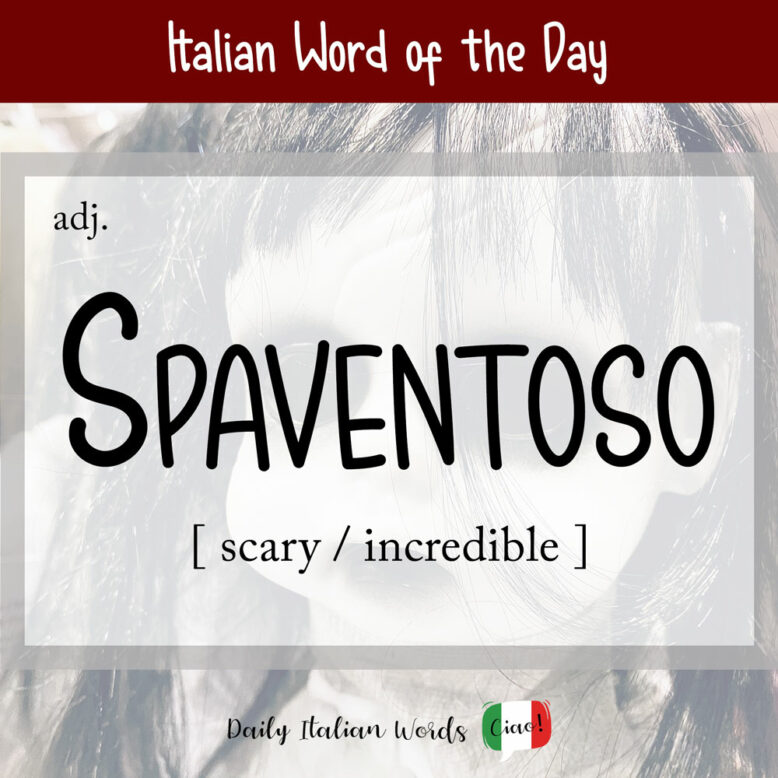The adjective spaventoso in Italian is interesting in that it has either a positive or negative connotation depending on how it is used.

In its negative and more traditional sense, it describes anything that causes fright or arouses feelings of terror and bewilderment. Some possible translations including scary, frightening, frightful, terrible, horrible or dreadful.
Ieri ho avuto un incubo spaventoso.
Last night I had a scary / terrible dream.

However, in Italian, just as in many other languages, the meaning of words is sometimes “flipped” over time, especially in slang or the common spoken language. To use English as an example, words such as bad, wicked and sick all originally had a negative connotation, but their meaning was later turned on its head to indicate something positive – “a wicked new song”, for example.
The same applies to spaventoso, which is also used hyperbolically to describe something as being incredible, extraordinary, terrific or amazing.
È spaventoso quanto sia brava Elena – è difficile immaginare qualcosa che non sia in grado di fare!
It’s amazing how good Elena is – it’s difficult to imagine something she’s not able to do!

Because it is an adjective ending in -o, its form changes depending on the gender and/or plurality of the subject it describes.
- spaventoso = masculine, singular (e.g. un mostro spaventoso = a scary monster)
- spaventosa = feminine, singular (e.g. una velocità spaventosa = an incredible speed)
- spaventosi = masculine, plural (e.g. mostri spaventosi = scary monsters)
- spaventose = feminine, plural (e.g. velocità spaventose = incredible speeds)
Spaventoso comes from the noun spavento which means scare or fright. Also related is the verb spaventare meaning to scare or to alarm, as well as the reflexive spaventarsi meaning to get scared or to frighten oneself.
Heather Broster is a graduate with honours in linguistics from the University of Western Ontario. She is an aspiring polyglot, proficient in English and Italian, as well as Japanese, Welsh, and French to varying degrees of fluency. Originally from Toronto, Heather has resided in various countries, notably Italy for a period of six years. Her primary focus lies in the fields of language acquisition, education, and bilingual instruction.


